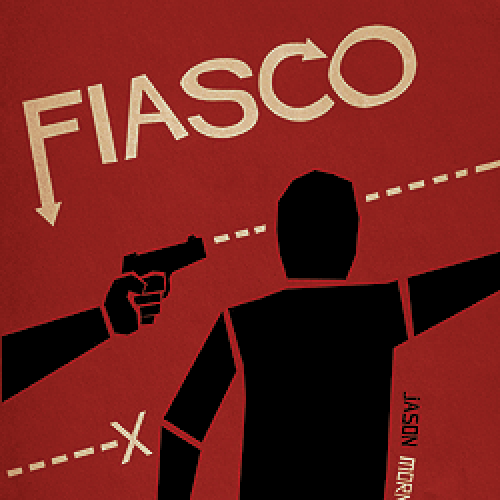Fiasco Reflection

Fiasco was one of the most creative exploits I have been a part of. I had no idea what to expect especially because I did not know what exactly was a table-top role playing game. In terms of preparation, my group and I were at most skeptical, with the exception of Jake, who seemed like he had a broader sense of how this game worked. I thought I was more overwhelmed than worried about how this process was going to play out because of the enormity of rules we had to know. Everyone had some idea of how to play, but some had different interpretations than others. In fact, this variance of perspectives is exactly what drew our interest and got the ball rolling. Perhaps this was the essence of the game, we just had to find out for ourselves.
After setting criteria which we all agreed on, the game slowly began to take shape. Emphasis on the word “slowly”. Because no one was completely sure of what was going to happen, there was a tendency to “play safe”. Some of us wanted to keep our actual names for the game but others argued that creating a narrative from scratch might be the point of the game and yield more creative results. With this is mind, my group gradually became more comfortable through discussing the relationships, albeit random, we would be involved in.
I really enjoyed the set up of Fiasco even though it was technically the most time consuming aspect for us. The intricate web of characters and their relationships was exciting to create especially with a group of five students collectively giving their input. With the intention of creating the best story possible, our group dove into a flurry of narrative options while we each played out a scene. I found myself giving and taking advice about everything, which basically helped weed out some options that did not fit into our plot. Sometimes I would listen to the general consensus that I should not kill my client (I was a drug dealer) and other times I would stick to my gut and acquire multiple dangerous weapons to cause chaos and to protect myself.
This freedom of choice could not be more prevalent in Fiasco as the entire objective was to use our choices to impact the overall plot. The availability of choice reminds me of other games we have played that did not necessarily provide it. For example, Dear Esther was a very straight forward, linear type game that did not contain room for creativity and collaboration that Fiasco offers. Another important aspect of the freedom of choice in Fiasco is that it allows multiple scenarios to intertwine without completely complicating the plot line. Of course there is a possibility that a plot revolving around eight or so relationships can get extremely convoluted and confusing, but my group did a great job of walking that fine line between creating an intriguing story while keeping things relatively simple and clear.
During discussions, our professor really emphasized how Fiasco can be seen as an actual form of writing. In other words, playing Fiasco is equivalent to writing an essay. I agree with this to a point. The idea of forming a well thought out structure that helps guide a story fits perfectly with the objective of Fiasco, but the involvement of several other minds and opinions distinguish the type of writing Fiasco employs. I seem to relate Fiasco more so to our podcast project. The notion of collaboration shines through both the podcast project and Fiasco. Without the collective thoughts of my group, we would not have been able to mold this dramatic and intense story that we are proud of today. Playing Fiasco not only exposed me to an entirely different mode of creative thinking, but it also shed light on how writing is not just a straight forward process.





